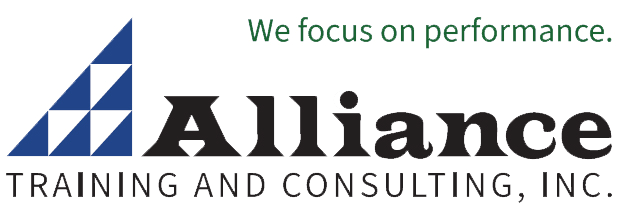The Professional Supervisor
 Courseware Includes:
Courseware Includes:
 Intellectual Property:
Intellectual Property:
In today’s changing workplace, many new supervisors are unsure of their roles and responsibilities. They have little experience dealing with the challenges of managing work through others. They have not had the opportunity to develop those critical skills of planning work, leading their group, and communicating with their employees, their colleagues, and their manager. This course will give you just that opportunity.
How You Will Benefit:
- You will understand the scope and nature of the supervisory position
- You will learn some ways to deal with the challenges of the role
- You will recognize the responsibilities you have as a supervisor, to yourself, to your team, and to your organization
- You will identify key techniques to help you plan and prioritize effectively
- You will acquire a basic understanding of and develop strategies for leadership, team building, communication, and motivation and what part they play in effective supervision
What You Will Cover:
- Adjusting to your role
- A supervisor’s responsibilities
- Making plans
- Setting goals
- Leadership
- The Situational Leadership model
- Problem employees
- Synergy
- Trust
- Team development
- Communication skills
- The communication process
- Motivation
- Orientation
- Training
- Providing feedback
- Delegation
- Dealing with conflict
- Discipline
The Art of Delegating Effectively
 Courseware Includes:
Courseware Includes:
 Intellectual Property:
Intellectual Property:
Delegation is often one of the hardest skills for a manager to master. However, the skill can be learned. This one-day workshop will explore many of the facets of delegation: when to delegate, and choosing the right person. We will also go through the delegation process step by step, to see where the pitfalls lie, and what we can do about getting around them.
How You Will Benefit:
- Clearly identify how delegation fits into your job and how it can make you more successful
- Identify different ways of delegating tasks
- Use an eight-step process for effective delegation
- Give better instructions for better delegation results
- Ask better questions and listen more effectively
- Recognize common delegation pitfalls and how to avoid them
- Test your delegation skills
What You Will Cover:
- What is delegation?
- Why delegate?
- Picking the right person
- The delegation meeting
- Levels of authority
- Giving instructions
- Communication skills
- Monitoring delegation
- Practicing delegation
- Giving feedback
- Becoming a good delegator
The ABC’s of Supervising Others
This course is designed to help you overcome many of the supervisory problems you will encounter in your first few weeks as a boss, whether you are a team leader, a project manager, or a unit coordinator. Dealing with the many problems a new supervisor encounters is not easy, but it does not have to lead to discouragement.
How You Will Benefit:
- Clarify roles and responsibilities of the new job
- Adjust to the new role with confidence and an assurance you can handle the position
- Develop your skills in listening, asking questions, resolving conflict, and giving feedback to employees
- Develop a technique for making sure you give employees instructions that are clear and understood
- Identify some techniques to deal with employee challenges, such as hostility, complaints, and laziness
- Understand the importance of developing good relationships with employees and peers, so you are seen as fair and consistent
What You Will Cover:
- Pre-assignment review
- Making the transition
- Responsibilities of a supervisor
- Setting goals
- Planning for success
- Listening skills
- Asking questions
- Giving feedback
- Ask for what you want
- Giving instructions
- Orders, requests, and suggestions
- Managing conflict
- Dealing with difficult employees
- Dealing with others
- The reciprocal quality of relationships
Performance Management: Managing Employee Performance
 Courseware Includes:
Courseware Includes:
 Intellectual Property:
Intellectual Property:
Inspiring someone to be their best is no easy task. Just how do you manage for optimum performance? How do you create a motivating environment that encourages people to go beyond their best? This workshop will give you some of those skills.
How You Will Benefit:
- Understand the role of goal setting in performance management
- Have tools to help your employees set and achieve goals
- Have a three-phase model that will help you prepare employees for peak performance, activate their inner motivation, and evaluate their skills
- Have a better knowledge of motivational tools and techniques
What You Will Cover:
- The Shared Management Model
- Setting Goals
- Phase I (Preparation): Choosing the Right Person for the Job, Setting Standards, Coaching and Training
- Phase II (Activation): Motivation
- Phase III (Ongoing and Formal Evaluation): Feedback and Performance Reviews
Motivation Training: Motivating Your Workforce
 Courseware Includes:
Courseware Includes:
 Intellectual Property:
Intellectual Property:
It’s no secret. Employees who feel they are valued and recognized for the work they do are more motivated, responsible and productive. This is a packed workshop to help supervisors and managers create a more dynamic, loyal and energized workplace. This program is designed specifically to help busy managers and supervisors understand what employees want and to provide them with a starting point for creating champions.
How You Will Benefit:
- Identify what motivation is
- Learn about common motivational theories and how to apply them
- Learn when to use the carrot, the whip and the plant
- Discover how fear and desire effect employee motivation
- Explore ways to create a motivational climate and design a motivating job
What You Will Cover:
- What is motivation?
- Supervising and motivation
- Motivational theories
- The carrot, the whip and the plant
- Fear and desire
- Setting goals
- The role of values
- Creating a motivational climate
- The expectancy theory
- Designing a motivational job
- A motivational checklist

